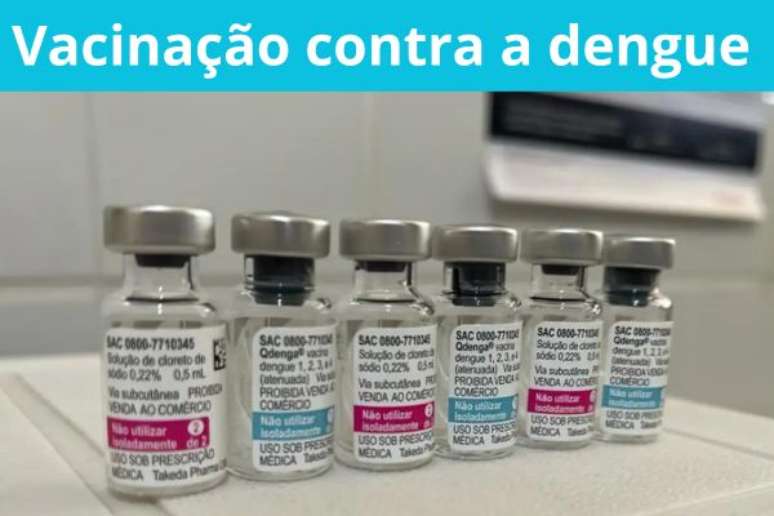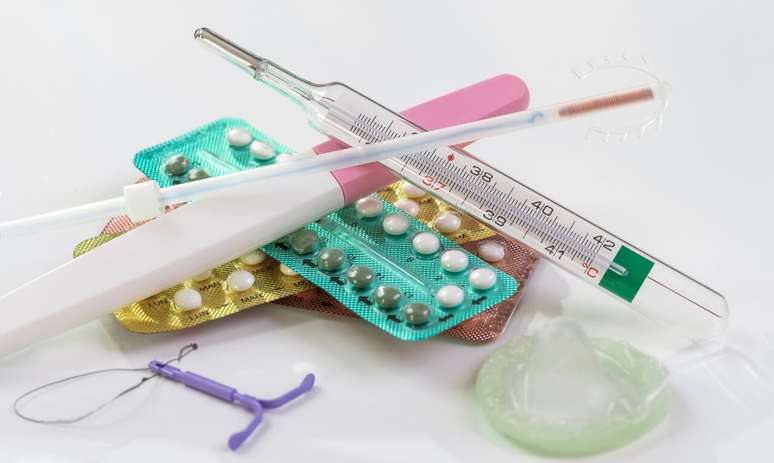Applications of the dengue vaccine began to be applied this Wednesday (3). Check out this and other immunization information.
Dengue vaccination has begun this Wednesday (3), in the city of Dourados. The initiative takes place through a partnership between the Municipal Health Department and the Japanese laboratory Takeda, responsible for the production of the vaccine, called Qdenga.
We collected data from the Ministry of Health, the municipality of Dourados and spoke with Dr. Carolina de Oliveira Abrão, infectious disease specialistin order to better understand how the vaccine works and the application process in the country.
Vaccination in Dourados
According to the municipality of Dourados, they have already been delivered 90 thousand doses and the municipality awaits the arrival of others 70 thousand. The complete Qdenga immunization course requires application of two doses. According to the Takeda laboratory, the chances of hospitalization are reduced by 90% and the protection is in effect for, at least 5 years.
They should be vaccinated approximately 150 thousand Douradense between 4 and 59 years old, in the coming weeks. Yesterday, the 3rd, was the first day of administration of the vaccine, the work began around 7am.
The first person vaccinated was Francisleine Costa, mother of a young man A fifteen-year-old victim of dengue last year. He stated in an interview with the city of Dourados:
My son was buried on his birthday due to this fatality. Now the vaccine has arrived and I am campaigning for everyone to get vaccinated so they don’t suffer the same pain as me. I am happy that Dourados is the first city in Brazil to provide this service to the public
National immunization against dengue
The dengue vaccine has been included in the National Immunization Plan (PNI) in December 2023 and applications must begin in February. The Ministry of Health reported this, the Takeda laboratory specified they do not yet have the capacity to produce the vaccine on a large scale that meets Brazil’s continental needs, therefore the initial project will focus on priority regions and audiences.
It is important to remember that, in 2023, Brazil broke a record for recorded dengue-related deaths 1,079 victims as of December 27. In 2022, the number was 1,053.
Regarding the increase in cases, the Ministry of Health stated:
Given the expected increase in cases in Brazil in the coming months, the Ministry of Health will invest R$256 million in strengthening arbovirus surveillance. The ministry also inaugurated the National Arbovirus Room (SNA), a permanent space that will allow real-time monitoring of places with the highest incidence of dengue, chikungunya and Zika to prepare Brazil for a possible increase in cases of these diseases in the next months .
See the Takeda laboratory proposal for the send doses of Qdenga for the PNI:
|
MONTH |
NUMBER OF DOSES |
|
February |
460 thousand |
|
March |
470 thousand |
|
May |
1,650 million |
|
August |
1,650 million |
|
September |
431 thousand |
|
November |
421 thousand |
Infectious disease specialist explains dengue vaccine
We asked Carol how the vaccine works, she explained:
Two dengue vaccines are currently authorized in Brazil. The oldest is Dengvaxia. And the most recent, and most recommended, is Qdenga. That’s who we’re going to talk about.
Qdenga is a vaccine based on live attenuated (weakened) tetravalent virus, that is, it protects against the four serotypes of dengue.
Like other vaccines, it works by inducing the production of antibodies against the virus, speeding up a future immune response upon contact with the agent.
It is important to say that, unlike the previous vaccine, which could only be used in secondary prevention (i.e. it could only be administered to those who had already had the disease at least once), Qdenga can be administered to those who have never contracted the disease. had dengue, that is, it is used for both primary and secondary prevention.
We also wonder if the vaccine is safe for everyone, infectious disease specialist highlighted the established age range (from 4 to 60 years old). He also said that vaccines live attenuated virus, as in the case of Qdenga, should not be applied to pregnant women.
Regarding the effectiveness of the immunizer, Carol Abrão explained it to us variation between types of dengue. It is most effective for the types found most frequently in Brazil.
She adds:
The overall effectiveness of the vaccine is approximately 61%. However, it is interesting to note that, like other vaccines (such as those against influenza and Covid), Qdenga has shown a high overall efficacy against hospital admissions and severe dengue, at around 84%. In other words, anyone who gets vaccinated and still has the disease has a mild disease! And considering that dengue can lead to death, this fact alone justifies the search for a vaccine.
Recently, and correctly, the Qdenga vaccine was incorporated into the SUS, and should soon begin to be applied to higher risk groups (yet to be defined by the Ministry of Health). However, the vaccine is now available in private vaccination services and everyone aged between 4 and 60 and who has no contraindications is advised to get vaccinated.
Vaccines save lives!
By Tiago Vechi
Journalist
Source: Terra
Ben Stock is a lifestyle journalist and author at Gossipify. He writes about topics such as health, wellness, travel, food and home decor. He provides practical advice and inspiration to improve well-being, keeps readers up to date with latest lifestyle news and trends, known for his engaging writing style, in-depth analysis and unique perspectives.





![It All Begins Here: What’s in store for Tuesday 21 October 2025 Episode 1289 [SPOILERS] It All Begins Here: What’s in store for Tuesday 21 October 2025 Episode 1289 [SPOILERS]](https://fr.web.img3.acsta.net/img/99/48/99481db5c03e1ff295fce95b23125991.jpg)



